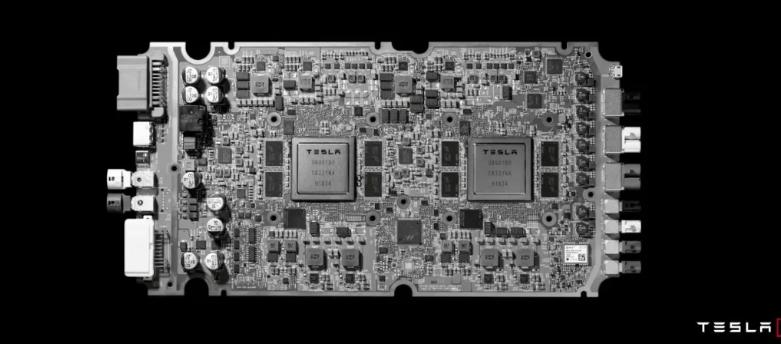Tesla (NASDAQ: TSLA) muss möglicherweise die Besitzer von rund vier Millionen Fahrzeugen, die mit seinem autonomen Fahrcomputer HW3 ausgestattet sind, nachrüsten oder finanziell entschädigen , nachdem CEO Elon Musk kürzlich zugegeben hat, dass die Hardware nicht über die Kapazität verfügt, das versprochene autonome Fahren der Stufe 4 oder 5 zu unterstützen.
Diese Entwicklung könnte zu einer der teuersten Produkthaftungen in der Automobilgeschichte führen – möglicherweise übersteigen sie sogar die Kosten der bislang größten Rückrufaktionen.
Ein Jahrzehnt unerfüllter Versprechen
Im Jahr 2016 erklärte Tesla öffentlich, dass alle von diesem Zeitpunkt an produzierten Fahrzeuge „die gesamte für das vollautonome Fahren erforderliche Hardware“ enthalten würden. Im Laufe der Jahre bekräftigte Musk dieses Versprechen und meinte, ein zukünftiges Software-Update würde Tesla-Fahrzeuge in vollständig autonome „Robotaxis“ verwandeln, die ohne menschliches Eingreifen fahren könnten.
Fast ein Jahrzehnt später ist die überwiegende Mehrheit der Tesla-Fahrzeuge jedoch immer noch nicht zum unbeaufsichtigten autonomen Fahren fähig, und es ist klar, dass viele davon auch nie dazu in der Lage sein werden.
Hardware-Evolution: Von HW2.5 bis HW4
Tesla stattete seine Fahrzeuge ursprünglich mit seinem HW2.5-Computer aus, wechselte jedoch ab 2019 schnell zu HW3 und verwies dabei auf die Einschränkungen von HW2.5. HW3 wurde als Grundlage für Teslas „Full Self-Driving“-Suite (FSD) vermarktet und bis Ende 2023 in Fahrzeugen verbaut. Im Jahr 2023 führte Tesla HW4 – ein deutlich leistungsfähigeres System – in neueren Modellen ein.
Anders als beim Übergang von HW2.5 zu HW3, bei dem Tesla FSD-Käufern kostenlose Upgrades anbot, war der Wechsel zu HW4 mit der öffentlichen Zusicherung von Musk verbunden, dass der Fokus des Unternehmens weiterhin auf der Optimierung der FSD-Leistung für HW3-Fahrzeuge liege. Er behauptete sogar, HW4 werde in der Anfangsleistung „hinter HW3 zurückbleiben“. Diese Behauptungen erwiesen sich jedoch als kurzlebig.
Musk räumte ein, dass HW3 im Januar 2025 nicht über die nötige Verarbeitungskapazität für echtes autonomes Fahren verfüge . Diese Erkenntnis betrifft weltweit rund 4 Millionen Fahrzeuge.
Wer lässt sich nachrüsten – und wer nicht?
Musk erklärte, Tesla werde HW3-Fahrzeuge nur dann nachrüsten, wenn ihre Besitzer das FSD-Paket erworben hätten. „Das wird mühsam und schwierig“, räumte Musk ein, „aber wir werden es schaffen.“ Er spielte das Ausmaß der Herausforderung herunter, indem er andeutete, dass sich nur wenige Kunden dafür entschieden hätten.
Die verfügbaren Daten sprechen jedoch eine andere Sprache. Bis Ende 2022 hatte Tesla allein in Nordamerika über 400.000 FSD-Betatester im Einsatz, weltweit dürften es über 500.000 sein. Die Nachrüstung selbst dieser Fahrzeuganzahl würde Hunderttausende Arbeitsstunden erfordern und über 500 Millionen Dollar kosten – ohne die restlichen 3,5 Millionen HW3-Fahrzeuge einzubeziehen, deren Besitzer ebenfalls glauben gemacht wurden, ihre Autos seien „robotaxi-fähig“.
Rechtliche und ethische Auswirkungen
Teslas Versprechen, dass „alle seit 2016 produzierten Fahrzeuge über die notwendige Hardware für vollautonomes Fahren verfügen“, erweist sich nun als unzutreffende Werbung. Tatsächlich ordnete ein Richter im Jahr 2022 an, dass Tesla die Hardware für autonomes Fahren eines Kunden kostenlos aufrüsten muss, um ihm die Nutzung von FSD-Diensten zu ermöglichen . Damit wurde ein Präzedenzfall geschaffen, der sich auf andere Besitzer auswirken könnte – selbst auf diejenigen, die FSD ursprünglich nicht gekauft hatten.
Tesla hat in den letzten Jahren stillschweigend die Bezeichnung „Hardware-fähig“ aus seinem Marketing entfernt, möglicherweise in Erwartung dieser rechtlichen Herausforderungen. Dennoch haben Besitzer von HW3-Fahrzeugen – ob FSD-Kunden oder nicht – gute Argumente dafür, dass ihre Fahrzeuge hinsichtlich der technologischen Leistungsfähigkeit falsch dargestellt wurden.
Electreks Analyse
Es bleibt ungewiss, ob Tesla Musks erklärte Absicht, FSD-Käufer aufzurüsten, auch umsetzen wird. Der operative Aufwand ist immens, und die langfristige Machbarkeit der Nachrüstung älterer Fahrzeuge mit modernster Hardware bleibt fraglich.
Tesla hat in der Vergangenheit Anreize wie temporäre „FSD-Transferfenster“ genutzt, um Kunden zum Kauf neuer Fahrzeuge zu bewegen, anstatt in Upgrades zu investieren. In diesem Zusammenhang könnte sich eine ähnliche Strategie entwickeln: Inzahlungnahmen oder Rückkaufprogramme werden gegenüber groß angelegten Nachrüstungen bevorzugt.
Für HW3-Besitzer, die das FSD-Paket nicht erworben haben, ist der Rechtsweg möglicherweise die einzige Option. Mehrere Gerichtsverfahren zu Teslas Behauptungen zum autonomen Fahren sind bereits anhängig, und Musks öffentliches Eingeständnis dürfte die Rechtsstreitigkeiten im Jahr 2025 verschärfen.
Letztendlich könnte Tesla mit einer Abrechnung konfrontiert werden, die nicht nur seine Finanzaussichten, sondern auch das öffentliche Vertrauen in seinen Fahrplan für selbstfahrende Autos verändert.
Weitere Blogs und Neuigkeiten zu Tesla finden Sie auf der offiziellen EVDANCE-Website.
Autor: Lay Wen
Empfohlene Lektüre: Tesla HW3-Fahrzeuge mit Intel Atom-Chips verpassen Funktionen des Frühlings-Updates, enthüllt Sawyer Merritt








Aktie:
Elon Musk bestätigt, dass HW3-Computer für selbstfahrende Autos ersetzt werden müssen – Nachrüstung nur für FSD-Käufer möglich
Tesla-Markentreue sinkt: Inzahlungnahmen steigen im März um 250 %, da sich Amerikaner von Elon Musk abwenden